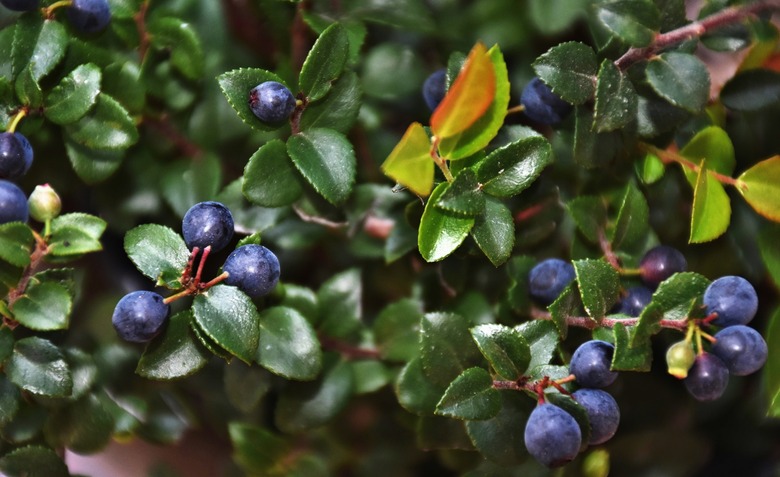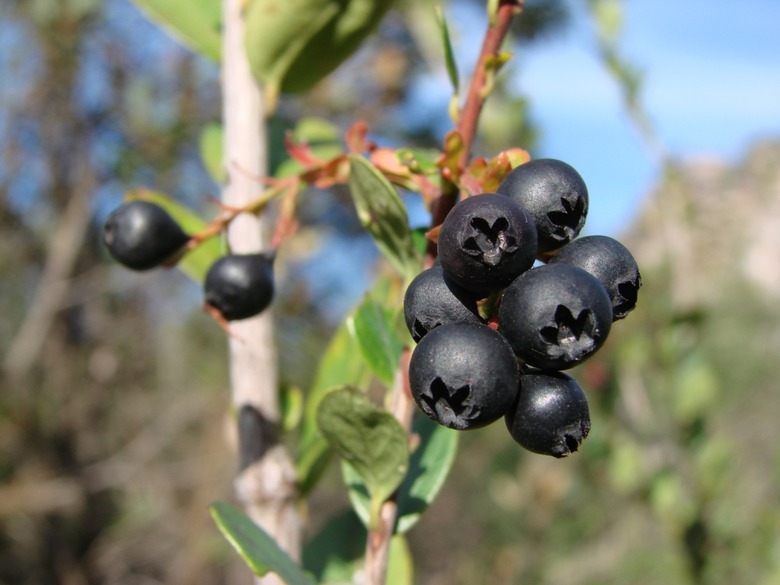How Should Huckleberries Taste?
The name "huckleberries" has a kind of down-home sound, and it's true that huckleberries have not become a commercially important crop in the U.S. They have a following, however, and several growers and sellers have made them available to consumers, the western huckleberry variety in particular.
Because they are not commonly found in grocery stores, many people are unfamiliar with their flavor. If you do come across some, either in the wild or at a farmer's stand or grocery store, what exactly is huckleberry flavor?
What Kind of Huckleberry Is It?
First, let's explore the types of huckleberries and which kind you are most likely to come across. Generally, huckleberries break down into western varieties, eastern varieties and those called "garden huckleberries." These are all quite different, but the western variety is often thought to have the best flavor and to be the most desirable to consumers.
Western Huckleberries
Also called bilberries or whortleberries, the western huckleberry (Vaccinium spp.; USDA zones 7 to 9) has been an important crop for Native Americans for generations. It's harvested commercially, albeit in small production amounts.
Among the most prevalent is the evergreen, or "black winter" huckleberry (V. ovatum), which is native to forests along the Pacific Coast from Southern California to British Columbia.
Eastern Huckleberries
Growing in the southern U.S., eastern huckleberries (Gaylussacia spp.; USDA zones 5 through 9) are an entirely different berry from western huckleberries. Resembling blueberries, each fruit contains 10 large seeds, and the flavor is considered poor.
These huckleberries have never been grown commercially, since the western huckleberry has been favored for flavor and texture.
Garden Huckleberries
Garden huckleberries (Solanum melanocerasum; USDA zone 10) are not actually huckleberries at all, although some seed supply retailers market them as such. They are actually related to tomatoes and nightshade veggies.
These berries can be poisonous if eaten unripe, and they have never been commercially produced.
Huckleberries have been variously described as tart and similar to a blueberry, while others liken their flavor to a cross between a blueberry and a raspberry. They might have a flavor of "wildness," and some also profess a preference for the "better" flavor of huckleberries over blueberries.
What Does a Huckleberry Taste Like?
It's tough to describe the flavor of something, but huckleberries have been variously described as tart and similar to a blueberry, which they do indeed resemble. They might have a flavor of "wildness," some people say, and some also profess a preference for the "better" flavor of huckleberries over blueberries. Some other huckleberry fans liken their flavor to a cross between a blueberry and a raspberry.
Overall, a huckleberry certainly has some sweetness, and the flavor will largely depend on the variety and degree of ripeness, its sweetness or tartness.
Identifying a Ripe Huckleberry
Huckleberries, which begin to ripen in mid-August, should be a deep, purplish black. If they are pinkish or even have a hint of pink, they are not yet ripe.
Further, they will be hard. A ripe huckleberry should give way to the touch, then spring back when lightly squeezed. They may feel firmer, however, than a ripe blueberry because their skins are tougher and thicker.
Harvesting Huckleberries
If you have a huckleberry patch, monitor it closely, because you want to harvest the berries when they are fully ripe but before they start to shrivel.
As soon as you pick them, either eat them, cook them or refrigerate them immediately. Because their skins tear easily when you pull them from the canes, their juices easily escape and can promote quick rotting.
Tip
As soon as you pick your huckleberries, either eat them, cook them or refrigerate them immediately—because their juices easily escape and can promote quick rotting.
Huckleberries in the Kitchen
Some experts report that huckleberries contain more flavor-imparting chemicals than their domestic counterparts, blueberries. If you plan to make huckleberry jam or candies, try to combine the fruit from different bushes to create a smoother flavor with less variance.
You can frequently substitute huckleberries in recipes that call for blueberries, although the flavor will be stronger. If desired, use half blueberries and half huckleberries to ensure a sweeter, more standard taste.

